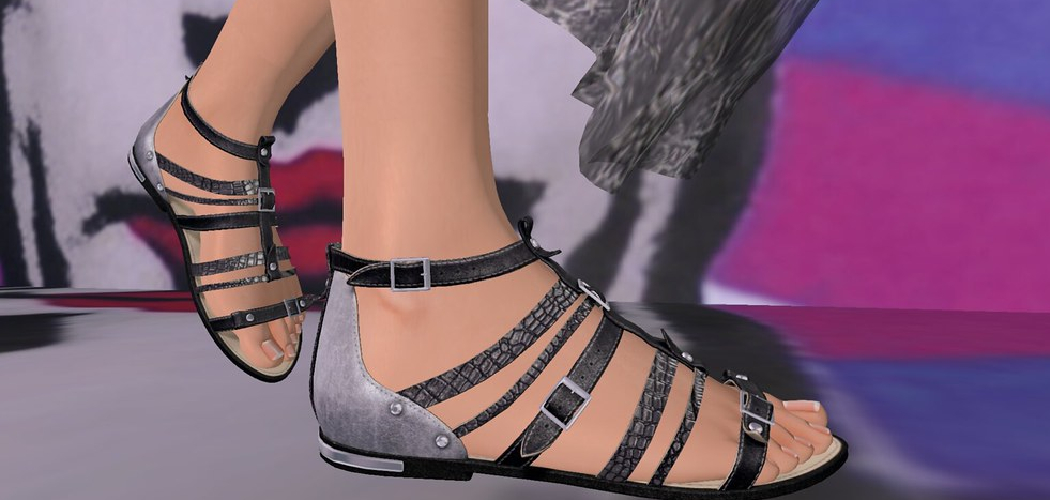Summertime means sandals time! But if you’re like me, you hate the constant squeaking they make every time you take a step. Well, never fear because we’re here to show you how to stop sandals from squeaking! Read on for my simple tips.
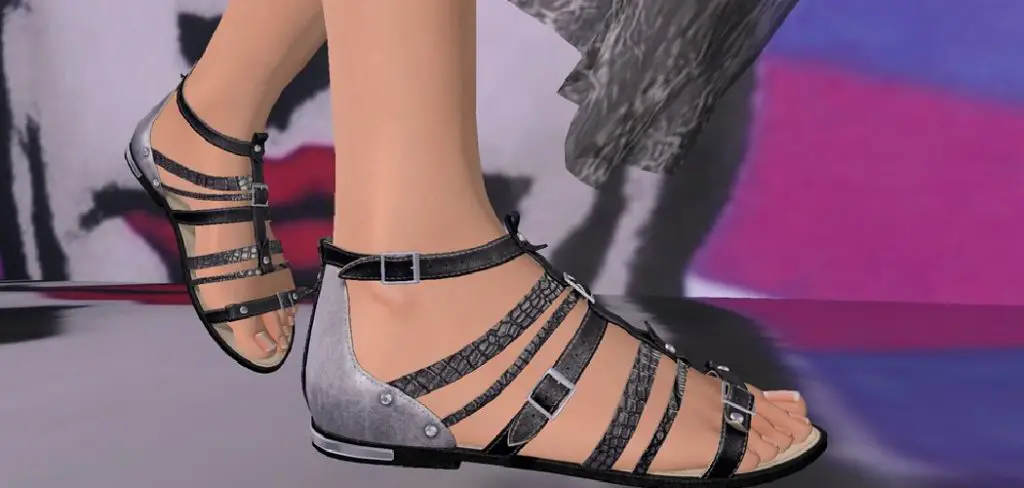
What Is the Squeaking Noise in A Sandal?
Sandals are one of the most popular types of footwear, especially in warm weather. They’re comfortable and easy to wear, but they can also be quite noisy. You’re not alone if you’ve ever wondered why your sandals make a squeaking noise when you walk. The good news is that there’s a simple explanation.
The noise is caused by the friction between the strap and the shoe’s sole. For example, the strap rubs against the sole when you walk, producing a squeaking sound. In most cases, the noise is nothing to worry about and will go away.
However, if the noise is particularly loud or persistent, it could signify that your sandals need to be replaced. So, if your sandals have been making a racket, it might be time for an upgrade.
Why Is My Sandal Making Squeaking Noise?
1. Worn-out sandals
If your sandals are old or have been well-worn, the straps may be starting to fray. This can cause the straps to rub against the sole of the shoe, which will create a squeaking noise. If your sandals are beginning to show signs of wear and tear, it’s time to replace them.
2. Tight sandals
If your sandals are too tight, they may be putting pressure on the straps. This can cause the straps to rub against the shoe’s sole and create a squeaking noise. If your sandals are too tight, try wearing them with socks or going up a size.
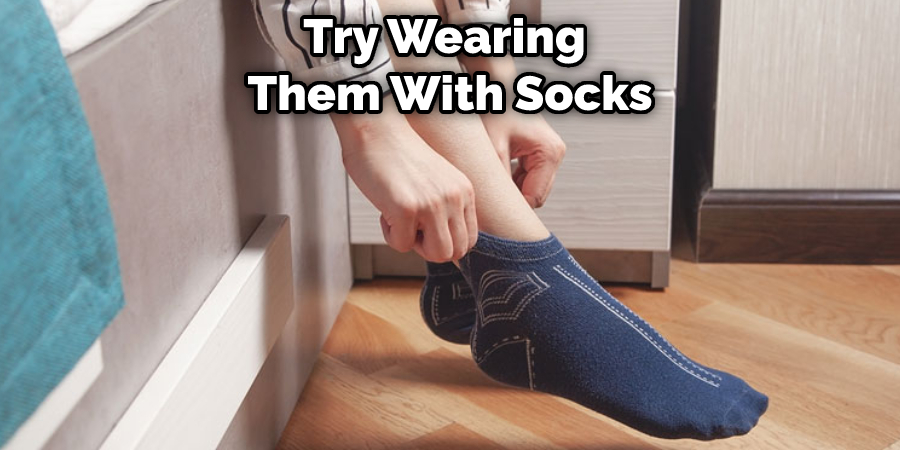
3. Dirty Sandals
If your sandals are new, they’re likely just dirty. The materials in the soles and straps can rub together and create a squeaking sound. To clean your sandals, wipe them down with a damp cloth. If the squeaking persists, you can try cleaning them with a mild soap and water solution.
4. Wet Sandals
If your sandals get wet, they may start to squeak. The moisture can cause the soles of your sandals to separate, which will create a gap that rubs and squeaks when you walk. Stuff your wet sandals with newspaper or paper towels overnight to prevent this from happening. This will absorb the moisture and help keep the soles of your sandals together.
5. Loose Sandals
If your sandals are a little loose, that could also be the reason they’re squeaking. Try tightening the straps or buckles to see if that helps quiet things down. If not, you may need to invest in a new pair of shoes.
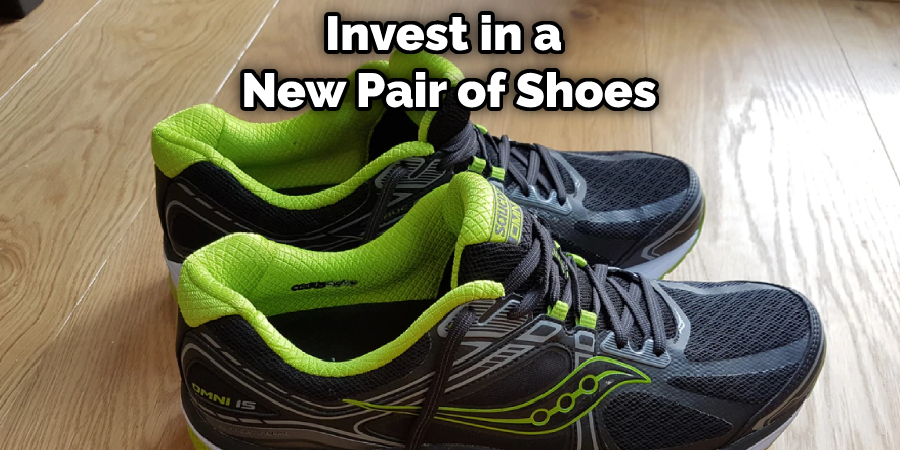
Why It’s Important to Stop Sandals from Squeaking?
No one likes the sound of squeaky sandals. It’s annoying and embarrassing and can ruin an otherwise perfect day. But did you know that there’s more to stopping sandals from squeaking than avoiding that awkward sound? Believe it or not, squeaky sandals can signify serious problems with your feet.
If your sandals are constantly making that annoying noise, it could be a sign that they don’t fit properly. Ill-fitting sandals can cause blisters, calluses, and even bunions. In extreme cases, they can even lead to permanent damage to your feet. So, next time you hear your sandals squeaking, take a moment to check the fit. It could save you a lot of pain in the long run.
Needed Materials:
Newspaper or Paper Towels:
To absorb moisture and prevent squeaking if your sandals get wet.
Damp Cloth:
To wipe down new sandals to remove any dirt that may be causing the squeaking.
Mild Soap and Water Solution:
Clean your sandals in case they are dirty and causing the noise.
Socks:
Wear tight sandals to prevent pressure on the straps.
10 Ways to Follow on How to Stop Sandals from Squeaking
1. Use Talcum Powder
Talcum powder is one of the most effective ways to stop sandals from squeaking. First, you need to sprinkle some talcum powder on the areas where your sandals make the most noise and walk around for a few minutes. The talcum powder will help absorb any moisture and lubricate the areas that are rubbing together, which will help to reduce the squeaking noise.
2. Use a Silicone-Based Lubricant
If talcum powder doesn’t work, or if you want a more permanent solution, you can try using a silicone-based lubricant. You can find these lubricants at most hardware stores. Just apply a small amount of lubricant to the areas where your sandals are squeaking and rub it in. The lubricant will help to reduce friction and prevent the sandals from squeaking.

3. Use Baby Powder
Baby powder can also be used to stop sandals from squeaking. Like talcum powder, baby powder will help absorb moisture and lubricate the areas that are rubbing together. Sprinkle some baby powder on the areas where your sandals squeak and walk around for a few minutes. Repeat as needed. You can also use cornstarch as a substitute for baby powder.
4. Use Some Petroleum Jelly
If you don’t have any baby powder, you can try using petroleum jelly. Apply a small amount to the areas of your sandals that rub against your skin and cause friction. This will help to reduce the amount of friction and hopefully prevent your sandals from squeaking as you walk. If you don’t have petroleum jelly, you can also try using coconut oil or olive oil.
5. Use WD-40
WD-40 is a multi-use product that can help to silence your squeaky sandals. Spray a small amount onto the affected areas of your sandals and let them sit for a few minutes. The WD-40 will lubricate the areas and stop the sandals from making noise. Just be sure to wipe off any excess before wearing your sandals again.
6. Use Vaseline
If your sandals are squeaking because of friction, you can try using Vaseline. Apply a small amount of Vaseline to the areas where the straps rub against your feet. This will help to lubricate the area and reduce the amount of friction. Just be sure to wipe off any excess before wearing your sandals again.
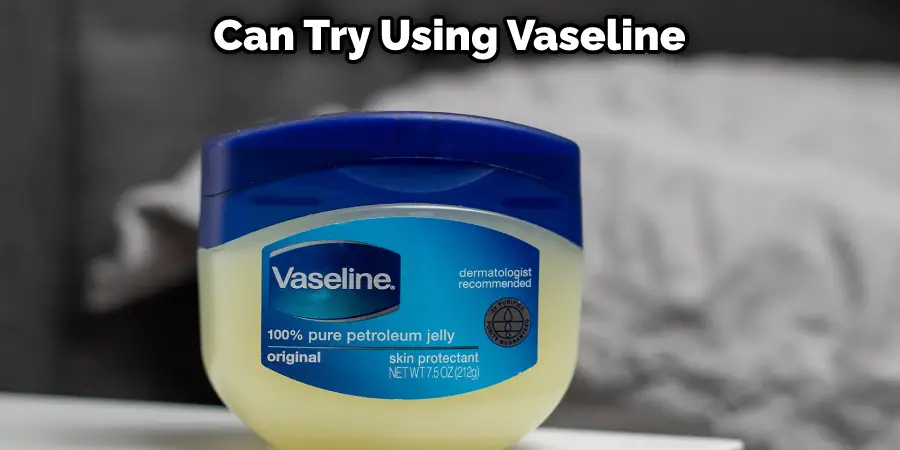
7. Use a Waterproofing Spray
If your sandals are made of leather or another natural material, you can try using a waterproofing spray to help silence the squeaking. Spray the inside and outside of your sandals with the waterproofing solution, and let them dry completely before wearing them again. This method may need to be repeated periodically to maintain its effectiveness.
8. Use Antiperspirant
If you have a pair of sandals that are particularly prone to squeaking, you can try using an antiperspirant on the areas where the straps rub against your feet. This will help create a barrier between your skin and the strap, which can help to prevent friction and reduce the noise. Just be sure to choose an antiperspirant that is non-irritating and hypoallergenic so that it won’t cause any problems for your skin.
9. Try Some Cornstarch
If you don’t mind getting your hands a little dirty, cornstarch can be a quick fix for squeaky sandals. Just remove the insole from your sandal and sprinkle generous cornstarch inside. Replace the insole and walk around for a few minutes to allow the cornstarch to work its magic. This method may need to be repeated as needed.
10. Take Your Sandals to a Shoe Repair Shop
If you’ve tried all of the above methods and your sandals are still squeaking, you may need to take them to a shoe repair shop. A professional will be able to determine the cause of the squeaking and make any necessary repairs. This is usually a last resort, as it can be expensive, but it may be the only way to get your sandals to stop squeaking.
That’s it! You’ve now learned how to stop sandals from squeaking. Just remember to take some preventative measures, like spraying your sandals with a waterproofing solution or using an antiperspirant to help keep them from making any noise. Then, with a little bit of effort, you can enjoy your favorite pair of sandals without the annoying squeak.
Why Does My Sandal Make Fart Noises?
If you’ve ever worn a pair of flip-flops or sandals, you’ve probably noticed that they tend to make farting noises when you walk. But why is this? The answer has to do with the way that flip-flops are constructed. Most sandals have a thin sole made of flexible materials like rubber or plastic.
When you walk, the sole of the sandal bends and flattens out, and as it does so, it traps pockets of air. These air pockets then escape as you continue walking, causing that distinctive farting noise.
So next time you’re at the beach or pool, don’t be embarrassed if your sandals start to make some noise – everyone’s sandals do it! Keep reading for more information about how to stop sandals from squeaking.
Why Do My Shoes Squeak Every Time I Walk?
There are few things more annoying than the sound of squeaky shoes. But have you ever wondered why your shoes make that annoying sound? The short answer is that it’s caused by friction. When you walk, your feet push off the ground and rub against the inside of your shoes.
This friction creates small amounts of heat, which causes the materials in your shoes to expand slightly. As a result, they rub against each other and create that characteristic squeaking noise as they expand. In some cases, this can even damage the materials in your shoes.
So, if you’re tired of hearing that annoying squeak every time you take a step, try wearing different shoes or adding a little bit of talcum powder to reduce the friction.
How Do You Walk Quietly in Flip Flops?
Walking quietly in flip-flops can be difficult, but it is possible with a little practice. First, make sure that the straps of your flip-flops are tight enough that they will not rub against your feet as you walk. Second, try to step lightly and evenly, avoiding any sudden movements.
You may also find it helpful to wear socks with your flip-flops, which can help absorb any noise. Finally, be mindful of the surface you are walking on. For example, if you are walking on a hard floor, you will need to take extra care to avoid making too much noise.
With a bit of effort, you can learn to walk quietly in flip-flops and enjoy the summer weather without disturbing those around you. You can also try some of the methods mentioned in this article to help reduce any noise from your sandals.
Additional Tips:
- If you’re planning on purchasing a new pair of sandals, try to find ones that are made of high-quality materials and have straps that fit comfortably without being too loose or too tight. This can help prevent squeaking in the first place.
- Regularly cleaning and maintaining your sandals can also help prevent them from squeaking. Wipe down the straps with a damp cloth to remove any dirt or debris that may be causing friction.
- If your sandals have adjustable straps, try adjusting them slightly to see if that helps reduce the noise. Sometimes, a small change in fit can make a big difference.
- Remember that some squeaking is normal, especially with certain types of sandals like flip flops. It’s only when the noise becomes excessive or bothersome that you may need to take action. So don’t stress too much if your sandals make a little noise – just enjoy the warm weather and have fun!
- Finally, it’s always a good idea to rotate between different pairs of shoes to give each pair a break and prevent wear and tear that can lead to squeaking. Plus, this gives you a chance to show off all your cute sandals! So don’t be afraid to switch it up and have fun with your footwear. Happy walking!
Frequently Asked Question
Q: Why Do My Heels Squeak when I Walk?
A: Your heels may be squeaking when you walk in because the shoes are not properly fitted. Also, when shoes are too tight, they can cause the heel to rub against the back of the shoe, which will create a squeaking noise. Be sure to try on several different shoes until you find a pair that fits comfortably.
Q: Can You Put Insoles in Sandals?
A: If your sandals are squeaking, you can try putting insoles in them to stop the noise. You can buy insoles at most drug stores or department stores. However, if your sandals are still squeaking after putting in the insoles, you may need to get a new pair of sandals. It’s always a good idea to consult with a professional at a shoe store for the best insoles for your specific style of sandals.
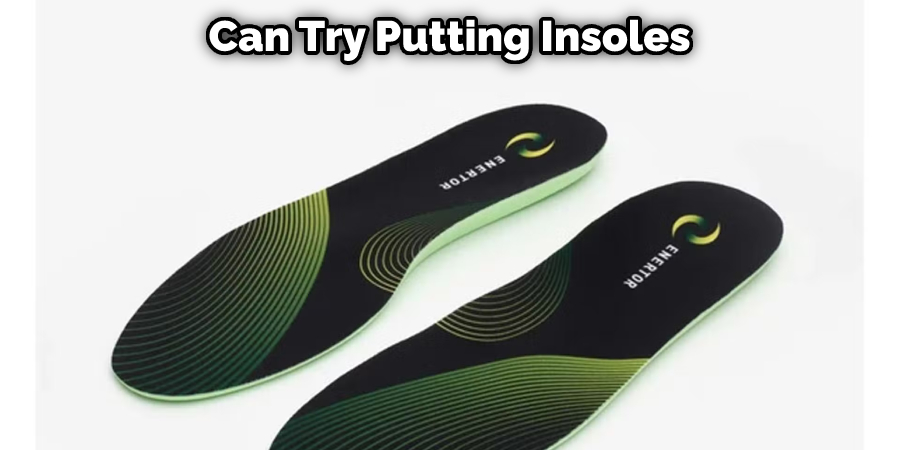
Q: Can I Put Baby Powder on My Sandals?
A: Yes, you can put baby powder on your sandals to help reduce squeaking. Simply sprinkle some baby powder inside your sandals, focusing on the areas where your feet rub against the straps. The powder will help to absorb moisture and reduce friction, which can help eliminate the squeaking noise. Just be sure to reapply as needed.
Q: Can I Use WD-40 to Stop Squeaky Sandals?
A: While some people swear by using WD-40 to stop squeaking sandals, it is not recommended as it can damage the materials in your sandals and potentially cause harm to your feet. It’s best to stick with safer methods, such as using baby powder or taking your sandals to a shoe repair shop. So, avoid using WD-40 on your sandals and opt for a more gentle solution instead.
Q: How Do I Keep My Sandal Straps from Rubbing?
A: Sandal straps rubbing against your feet can be uncomfortable and even cause blisters. To prevent this, you can try using moleskin or adhesive padding on the areas where your straps rub against your skin. You can also look for sandals with softer, padded straps or adjustable straps that allow for a more comfortable fit. Additionally, you can wear socks with your sandals to act as a barrier between your skin and the straps. Experiment with different methods to find what works best for you.
Conclusion
So there you have it – ten ways to stop your sandals from squeaking. If the squeaking is bothering you, try them out and see which one works best. And if all else fails, a little bit of baby powder or WD-40 should do the trick. Thanks for reading our post about how to stop sandals from squeaking. Happy walking!

